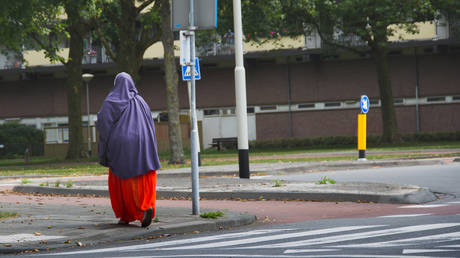
Migration cost EU state €400 billion – study
Expenses incurred by mass immigration to the Netherlands have averaged €17 billion per year over a quarter-century
The Dutch government’s spending on migrants exceeds the average outlay on education, social security and benefits, according a new study. The net cost of immigration has reportedly amounted to more than €400 billion ($430 billion at the current rate) over a nearly 25-year timeframe.
The study, titled “Borderless Welfare State: The Consequences of Immigration on Public Finances,” found that costs incurred by immigration policies in the Netherlands have totalled €17 billion a year on average, with a peak of €32 billion in 2016 due to the 2015 refugee crisis.
The authors of the study emphasised that the vast costs are mainly a result of financial redistribution via the welfare state, and concluded that either immigration will have to be curtailed, or the Dutch welfare system will have to undergo dramatic cuts.
Continuing immigration at its current pace and cost structure will put increasing pressure on public finances, the study stated, making the curtailment of the welfare state or immigration inevitable.
In 2016 alone, the Dutch government reportedly spent some €30 billion on education, which is €2 billion less than it spent on migrants in the same year.
Read more
Migrant-loving Western leaders are at war with their own people
The study also highlights that immigrants commonly pay lower taxes and make fewer social security contributions than non-migrants. This has been confirmed by a separate report made by the Dutch Finance Ministry, which admits that the net fiscal contribution of migrants is significantly lower than the rest of the population.
According to the study, there is a particularly high negative contribution rate from migrants coming from nations including Turkey and Morocco. Over the course of the average Moroccan immigrant’s lifetime, they were estimated to cost the Dutch people €260,000 per person.
According to the study, migrants from the Middle East and North Africa on average fail to make a positive contribution relative to what the state spends on them.
Other non-Western immigrants – notably Asians – make a slight net contribution, the research found. However, immigrants from Western countries lag behind native Dutch nationals in their economic contributions.
For more stories on economy & finance visit RT’s business section


